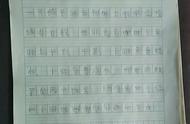
记录典型问题 分享教学方法
导语:关于介词;连词及副词的问答时间
(S: 学生 T: 老师)
问题一:
S: 老师,for example 和such as如何区分?它们都属于介词短语吗?
T: 共同点:
1.作为习语,二者都可定性为介词短语;
2.都译为“比如;举例;譬如”
3.后都可接句子或短语或单词。
不同点:
1.for example 后接句子时,通常加逗号;
2.for example 位置灵活,句首句中句尾皆可;
3.for example后一般加一个例子;
(说一般说明偶尔有例外)
4.such as有时可分开使用,即such 名词 as;
5.such as 后列举二个以上例子,但无需全部罗列,与like可互换使用。
例:
1. Football, for example,is very popular .
2. Wear something simple; for example, a skirt and blouse.
3. When I am tired, such as when I’m working on the computer,I turn to bread .
4. I visited many countries,such as Japan, Canada,Australia.
5. I visited such countries as Japan, Canada.
S:二者有共同点,是否可以互换使用?
T:比如例句3中的such as 可换为for example,但要加逗号:
When I am tired, for example, when I’m
working on the computer,I turn to bread .

问题二:
S: instead和instead of 怎么区分?
T: 不同点:
1. 词性不同:
instead是副词;instead of 是介词短语;
2. Instead后接句子,是要*事;
instead of 后接单词或短语,是没*事;
例:
1. She decided to leave here on Sunday
instead of Monday.
2. We have no coffee.
Would you like tea instead ?

问题三:
S: because 和because of 怎么区分?
T:词性不同:
because是连词,后接句子;
(所谓连词—成句)
because of 是介词短语,后接单词或短语;
(所谓介词—短语)
例:He didn’t know, because he was absent.
He didn’t know, because of his being absent.
He didn’t know, because of his absence.
S: 怎么分辨是句子还是短语呢?
T: 1. 谓语动词是一个句子存在的前提,或者说就那五大简单句;而短语包括名词短语、动词短语、介词短语、动词不定式短语、动名词短语、分词短语、形容词短语等;
2.短语有时并不短,短语里含有句子,依然叫短语。比如:
the boy who is sitting there (名词短语)
to do what you like (动词不定式短语)
Knowing who you are and what you are
interested in (动名词短语)

S: than是连词还是介词?后面跟句子还是短语?
T: than 既是连词也是介词,作为连词,后跟句子;作为介词,后跟单词或短语。
例:She is a better player than last year.
She is a better player than she was last year.
总结:常见的既是介词又是连词的单词:
1.than: prep./conj.比;较
2. after: prep./conj.在......之后
3. before : prep./conj.在......之前
4. till/until: prep./conj.直到......
5. since:prep.自从;conj.自从;既然
6. as:prep.作为;
conj. 尽管;由于; 当...时
7. for:conj.由于;prep. 为了
8. but :prep. 除了;conj. 但是
再强调:
作为连词,后跟句子;
作为介词,后跟单词或短语。
本节课教与学心得体会:
词性是单词教学的重中之重,再怎么强调都不为过;切不可将词性作为模糊的存在,搞清词性,学习也会变得自信!













